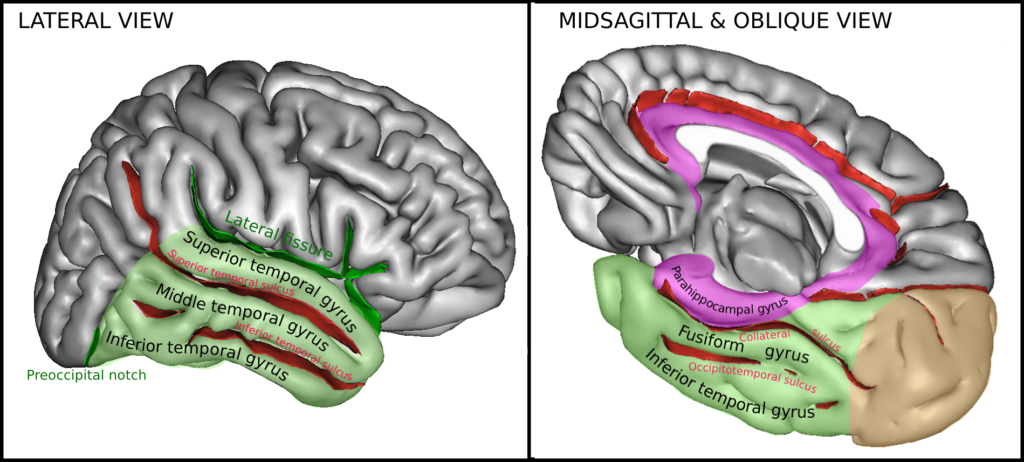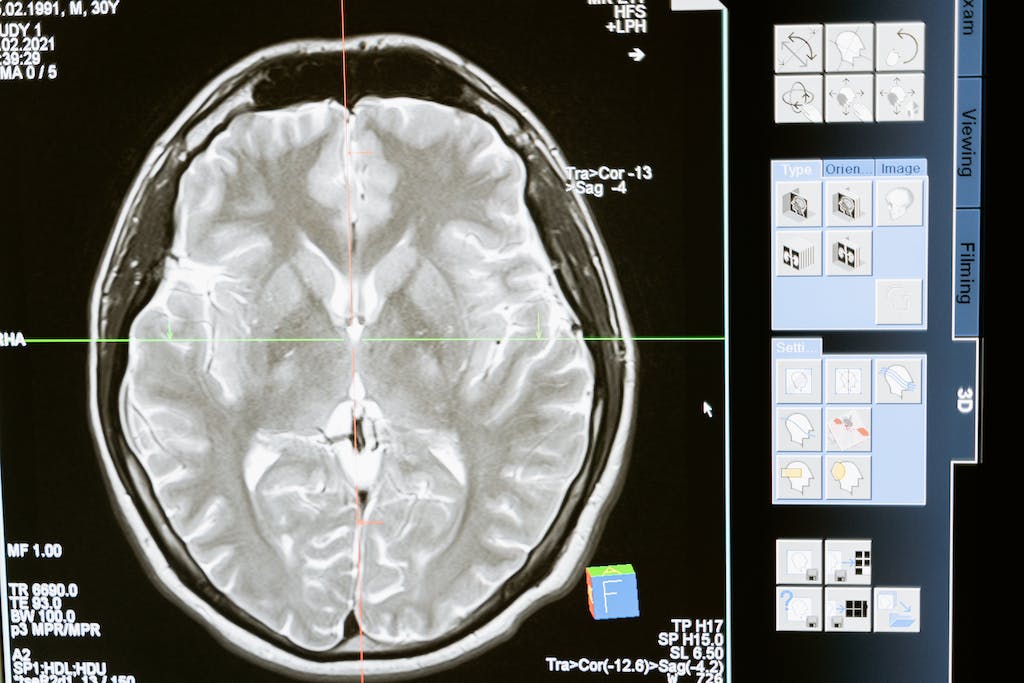How does our brain process memories?
Our brains are incredible machines, constantly processing and storing vast amounts of information. But have you ever stopped to wonder how our brains actually manage to remember and recall memories? I have always been fascinated by the inner workings of the brain and its role in memory. In this article, I will delve into the fascinating process of how our brains process and store memories and explore the various regions and neurotransmitters involved in this complex process. Before I start I want to say that this article will be kind of short for a very big topic like this, but my goal is to teach you the basics about how our brain processes memories and after a while ill come back with more information in a new article.
Communication Between Brain Regions
When we talk about memory and the processes involved in how we remember, it’s fascinating to delve into the way different regions of the brain communicate with each other. Recalling a memory is not a simple task; it’s a complex interplay of various regions working in unison. The cerebral cortex, often referred to as the “thinking cap” of the brain, is a crucial player in processing and retaining important information. This outer layer of the brain’s cerebrum is responsible for a myriad of functions, including the processing of sensory information and the coordination of motor commands. Additionally, the cerebral cortex is where the intricate work of encoding, storing, and retrieving our memories takes place.
On the other hand, the medial temporal lobe plays a significant role in coordinating the process of memory recall. This region of the brain is crucial for the formation, retention, and retrieval of declarative memories.

The Cerebral Cortex in Information Processing
Delving deeper into the role of the cerebral cortex in memory processing, we find that it’s responsible for processing important information and giving meaning to the stimuli we encounter. It includes various regions that manage raw sensory information, which is fundamental in the encoding phase of memory. The way in which the cerebral cortex filters and processes this influx of information is crucial to how we form and retain memories.
In addition to its role in processing sensory information, the cerebral cortex is also involved in the storage and retrieval of memories, playing a vital role in shaping our overall memory function. The involvement of this region in the complete cycle of memory, from the initial encoding of information to its retrieval at a later time, underscores its significance in the realm of cognitive neuroscience.

The Medial Temporal Lobe
One cannot explore the processing of memories in the brain without delving into the crucial role of the medial temporal lobe. This region of the brain is integral to the coordination of memory processes and is particularly important in the formation, retention, and retrieval of declarative memories. Its intricate functions and communication with other brain regions shed light on the complexity of the memory process. The way in which the medial temporal lobe orchestrates the various phases of memory, from initial encoding to later retrieval, is a testament to its importance in our cognitive architecture.
Moreover, the medial temporal lobe’s involvement in memory processing highlights the intricate web of connections within the brain that work together to support our memory function. From the formation of new memories to the seamless recollection of past events, the medial temporal lobe plays a pivotal role in the rich tapestry of our cognitive experiences.

The Hippocampus
At the heart of our memory processes lies the hippocampus, a region of the brain that is crucial for the formation, retention, and recall of declarative memories. The intricate web of connections and the plasticity of the hippocampus underscore its significance in our memory function. This seahorse-shaped region not only aids in the formation of new memories but also plays a vital role in spatial navigation, further emphasizing its importance in our daily lives.
Furthermore, the role of the hippocampus in memory processing extends to its involvement in the consolidation of short-term memories into long-term ones, exemplifying the seamless orchestration of memory processes within the brain. The hippocampus stands as a testament to the remarkable intricacy of our memory system and the indispensable role it plays in shaping our experiences and interactions with the world around us.

Temporal Regions and Learning
Exploring the temporal regions of the brain unveils their significant role in the learning process. These regions are intricately involved in the formation and retrieval of memories, shaping our ability to acquire and retain new information. The plasticity and connectivity of these temporal regions underscore their pivotal role in our capacity to learn and adapt to new experiences, highlighting the dynamic nature of our memory processes.
Additionally, the temporal regions play a crucial role in the encoding of memories related to specific events, further enriching our understanding of the multifaceted nature of memory processing within the brain. The way in which these regions support our ability to remember and learn from past experiences further underscores their importance in shaping our cognitive abilities and enriching our lives.
Related: Interested about love? Learn about the Psychology of Love.
Formation, Retention, and Retrieval of Memories
Memory is a multifaceted process that encompasses the intricate phases of encoding, retention, and retrieval. Understanding how these phases unfold within the brain provides insight into the remarkable complexity of our memory systems. From the initial perception of external stimuli to the consolidation of memories for long-term retention, each phase represents a vital part of the memory process, highlighting the seamless interplay of various brain regions and neural circuits.
Furthermore, the retrieval of memories, whether they are tied to specific events or general knowledge, showcases the intricate web of connections and the orchestrated communication between different brain regions. The way in which memories are retrieved and reconstructed underscores the dynamic and complex nature of our memory processes, shedding light on the remarkable adaptability and resilience of our cognitive architecture.
Cerebral Plasticity and Long-Term Memories
The plasticity of the brain stands as a remarkable feature that underlies our ability to form and retain long-term memories. This intrinsic property of the brain allows for the ongoing adaptation and reorganization of neural circuits, shaping our capacity to learn and retain information throughout our lives. The formation of long-term memories is intricately linked to the plasticity of the brain, underscoring the dynamic nature of our memory processes and the remarkable adaptability of our cognitive systems.
Moreover, the preservation of long-term memories and the continuous process of memory retrieval underscore the enduring nature of the connections and neural ensembles that support our recollection of past experiences and acquired knowledge. The interplay between synaptic connections and neural plasticity in the formation and retention of long-term memories provides a profound insight into the dynamic and ever-evolving nature of our cognitive abilities.

Dopamine and Theta Rhythm
The neurotransmitter dopamine and the brain’s theta rhythm play pivotal roles in the activation and coordination of memory processes. Dopamine, known for its involvement in pleasure and reward, also contributes to the activation of boundary and event cells, shaping the way in which memories are formed and retrieved. The intricate interplay between dopamine and memory processes underscores the multifaceted nature of our cognitive functions and the diverse factors that contribute to our memory abilities.
Furthermore, the theta rhythm, the brain’s internal rhythm, is intricately linked to the coordination of memory processes, playing a vital role in the encoding and retrieval of memories. The way in which the theta rhythm orchestrates the flow of information and the activation of memory-related brain regions highlights the dynamic and interconnected nature of our cognitive processes, shedding light on the remarkable orchestration of memory functions within the brain.
Encoding and Storage Phases of Memory
The encoding and storage of memories represent fundamental phases in the process of memory formation. During the encoding phase, external stimuli are perceived, processed, and given meaning, laying the groundwork for the formation of new memories. The way in which external stimuli are processed and integrated into our existing cognitive framework shapes the nature of the memories we form, underscoring the dynamic and adaptive nature of our memory processes.
Subsequently, the storage of memories involves the consolidation and retention of encoded information, with various brain regions and neural circuits working in harmony to preserve and store this information for later retrieval. The seamless orchestration of the encoding and storage phases represents a remarkable feature of our cognitive architecture, highlighting the intricate and dynamic nature of memory processes within the brain.

Conclusion
In conclusion, our brain is truly a remarkable organ that plays a crucial role in processing memories. Through the intricate communication between different regions of the brain, we are able to encode, store, and retrieve a vast array of memories, allowing us to learn and adapt throughout our lives. The plasticity of our brain allows us to continuously form new memories and avoid losing important ones. As a psychology student, it is fascinating to explore the various factors and processes involved in memory formation and recall, and it highlights the complexity and resilience of the human brain. From the role of neurotransmitters like dopamine to the different phases of memory, there is still much to uncover about how our brain processes memories. Only by further studying and understanding this incredible process can we truly appreciate the incredible capabilities of our brains.







Me agrado mucho este post espero sigas creciendo mas con cada publicación que vayas creando.